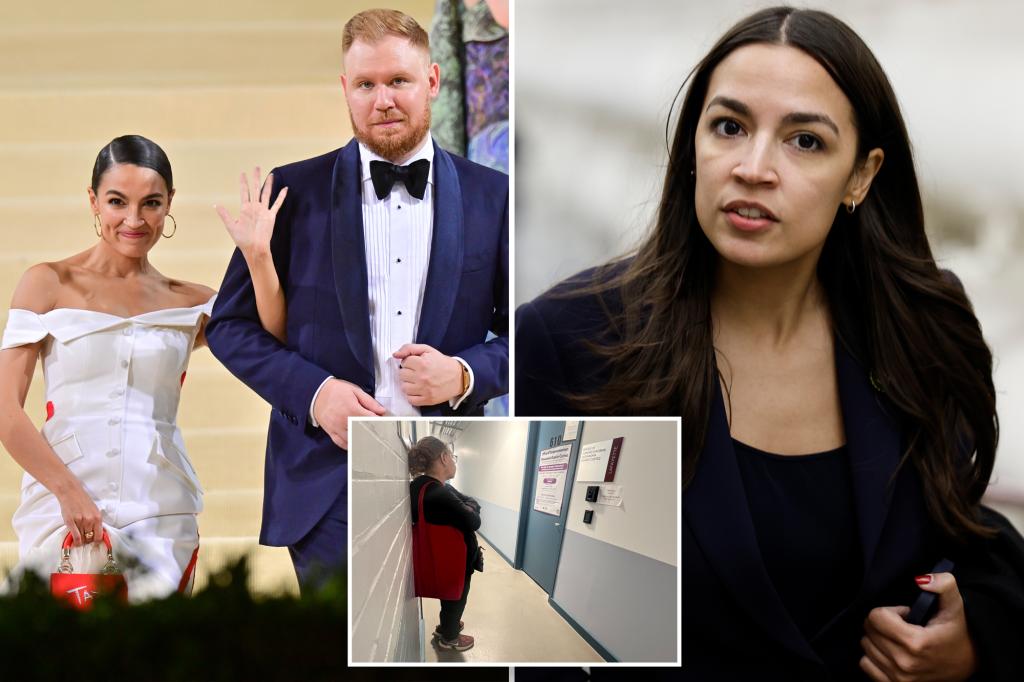Alexandria Ocasio-Cortez’s Financial Disclosure Delay Raises Questions
Representative Alexandria Ocasio-Cortez, the progressive Democrat representing parts of the Bronx and Queens, recently found herself under scrutiny for missing the deadline to file her mandatory 2024 financial disclosure documents. Though many lawmakers request the standard 90-day extension from the original May deadline, Ocasio-Cortez missed even this extended timeline, finally submitting her paperwork a week late on Wednesday. This delay comes at a time when some constituents have expressed concern about her presence in her district, adding another layer to ongoing discussions about her accountability to voters and transparency in office.
The financial disclosure reveals that the 35-year-old congresswoman has modest personal finances compared to many of her congressional colleagues. According to the filing, she has between $17,000 and $81,000 in bank accounts, while still carrying between $15,000 and $50,000 in student loan debt—a financial reality that resonates with many of her millennial constituents. Her assets include a savings account containing $15,000 to $50,000, a checking account with $1,000 to $15,000, and a 401(k) from her previous employer, the National Hispanic Institute, valued between $1,000 and $15,000. Ocasio-Cortez also declared less than $1,000 in a brokerage account. Compared to her 2023 filing, which reported between $3,000 and $46,000 in the bank, she appears to have increased her savings substantially this past year—somewhere between $14,000 and $65,000—while earning the standard congressional salary of $174,000 annually.
What has drawn particular attention in her disclosure is the complete absence of any mention of her long-time partner, Riley Roberts. The couple has been together for more than ten years and became engaged in Puerto Rico in 2022, yet Roberts does not appear anywhere in her financial paperwork. This omission became especially notable after the House Ethics Committee released a critical 26-page report in July, pointing out that Ocasio-Cortez had referred to Roberts as her “spouse” on various ethics forms when it provided advantages—such as securing travel benefits for trips to Japan, South Korea, Brazil, Chile, Colombia, and Italy—while simultaneously not including him on financial disclosures that would require revealing his assets and potential conflicts of interest.
Perhaps the most publicized instance of this discrepancy came in 2021, when Ocasio-Cortez identified Roberts as her spouse to secure a free $250 ticket to the Met Gala, where she famously wore a white dress emblazoned with the phrase “Tax the Rich” that reportedly cost $3,724. The Ethics Committee report was explicit in its criticism: “At the same time Representative Ocasio-Cortez was seeking to take advantage of exceptions to the Gift Rule only applicable to spouses and/or certain relatives, she was not disclosing Mr. Roberts’ financial interests as is required of Members who are legally married.” This selective application of Roberts’ status—sometimes a spouse for benefits, sometimes not for disclosure requirements—has raised questions about consistency and transparency.
Government ethics experts have pointed out that spousal disclosure requirements exist specifically to prevent conflicts of interest from being hidden through family members. Dylan Hedtler-Gaudette from the Project On Government Oversight explained the importance of these rules, noting that “if spousal disclosures were not required, it would be all-too easy to exploit that loophole and simply transfer any conflicted or problematic assets or financial activity into the spouse’s name.” He further emphasized that if Roberts is “going to avail himself of some of the perks and privileges of being the spouse of a member of Congress, he should surely have to likewise comply with the less convenient parts.” Roberts, described as a web developer who grew up in a wealthy area of Arizona, has no reported assets, liabilities, or stock holdings in the congresswoman’s financial disclosure form, leaving questions about his financial situation entirely unanswered.
The timing of Ocasio-Cortez’s eventual marriage to Roberts remains unclear, as she has been notably private about their wedding plans despite the public engagement announcement in 2022. This personal choice intersects with important ethical considerations about congressional disclosure requirements and when exactly partner finances must be reported. While the congresswoman’s personal financial situation—moderate savings, ongoing student debt, and a salary typical for members of Congress—reflects the financial realities of many Americans, the questions surrounding her disclosure practices highlight the complex intersection of personal relationships, public office, and the transparency expected from elected officials. As Ocasio-Cortez continues her congressional career as one of its most visible progressive voices, how she navigates these disclosure requirements may set precedents for others in similar situations.











